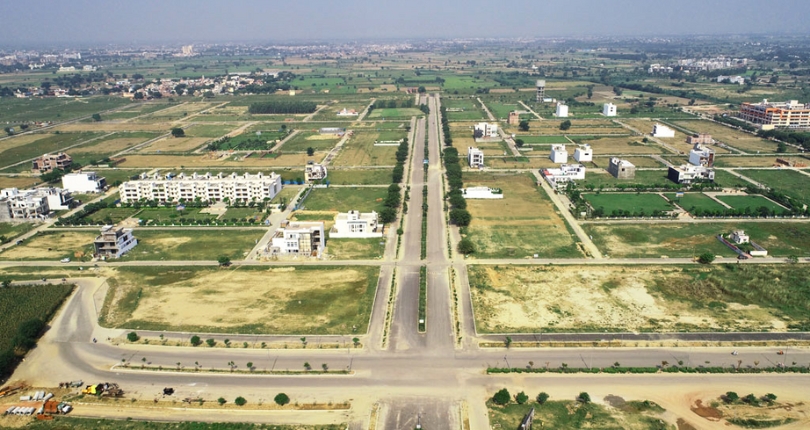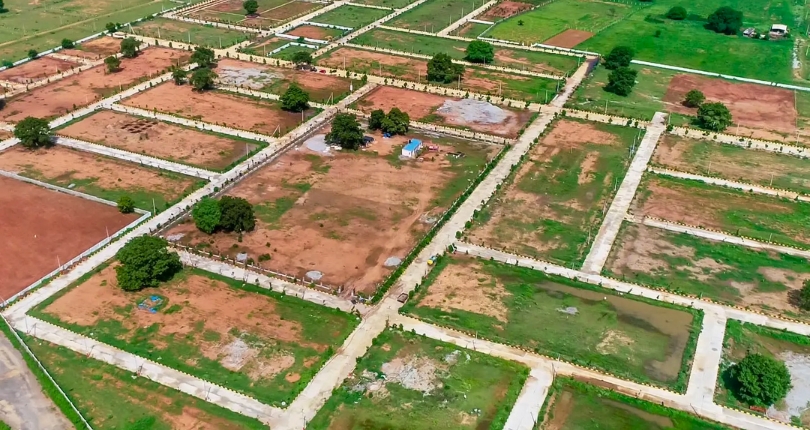
- On November 30,2024
- In Real Estate News
How to Evaluate a Propertys Resale Value
By assessing the value of a real estate, it can be easy to make an informed decision when purchasing one. Its all good and well to only consider what one likes or dislikes when purchasing a home or an investment property but understanding its future prospects are much more sustainable. Determining RV includes different aspects that affect the property marketing attractiveness and price fluctuations in the future. Below is an elaborate guide that will help any homeowner or property investor in evaluating the resale value of a property.
1. Location: The Most Critical Factor
When it comes to location it is always said that location, location and location. In most commercial buildings, houses that can be accessed easily around schools, workplaces, shopping areas, and public transport road facilities provide higher resale values.
Evaluate:
Neighborhood Growth Potential: Is the area growing or shrinking? With upcoming infrastructure such as a highway, mall or a transit line, property values are likely to skyrocket.
Amenities and Safety: Preferences are given to neighborhoods with little or no criminal activity, parks or similarly recreational zones, like gyms.
2. Market Trends in the Area
Conducting market research is crucial when trying to establish property value to determine if it raised in the future. Look into:
Historical Price Appreciation: What kind of pricing trends can be seen in this area within the last five to ten years?
Demand and Supply: Extreme demand also compounded with scarcity of accommodation may lead to high levels of resale values.
Market Conditions: A stock availant market may have a low price as compared to a stock scarce market that has high prices.
3. Elements of the property and physical condition
It has been observed that the characteristics of the property have a lot to do with notability when it comes to the resale factor. Consider the following:
Size and Layout: These properties are more appealing to buyers if they contain functional layout and adequate livable space.
Quality of Construction: Well-built tough and lasting structure assists to cut costs in maintenance which makes the property even more appealing.
Age of the Property: Of course, more modern buildings may cost a premium but first-class older buildings inside the prime locations may also retain the value.
This is the reason why it is important to maintain a property to enable it to be sold at the same price as was bought. Damage that cannot be seen or hidden from potential buyers are additional reasons for deferred maintenance are visible signs of wear and tear.
4. Curb Appeal and Aesthetics
First impressions matter. The exterior of a particular property should be notable and properly maintained as the interior. Factors to evaluate include:
Landscaping: A well-kept yard adds value.
Exterior Design: For instance, a modern or timeless design is preferred on the market than some particular period.
Energy Efficiency: Accents such as the roofs, windows, or insulations can be valuable to a property since buyers prefer the houses that will cost little to energy.
5. Section-II: Economic and Regional Influences
This is an indication that value of the property has close associations with the overall economic characteristics and area location.
For example:
Employment Opportunities: Better locations of the properties which are strategically located close to the business environment and growing employment opportunities.
Economic Stability: The study finds that regions with modest growth rates and low unemployment cases are likely to post better price improvement.
Regional Regulations: Additional influences of the values of properties include; Zoning laws or tax policies can affect it.
6. Its market and peer analysis also known as Comparable Market Analysis (CMA).
A CMA is an analytical form of determining the resale value of a given property through comparison with other properties sold in the same locality recently. Look at:
Size and Features: How does your property compare size and number of rooms and or amenities?
Recent Sales Data: Benchmark properties that are active sales within the last 6 to 12 months are the best.
Current Listings: The currently available properties inform the competition.
7. Future Development Potential
Consider with a view to growth whether the property has potential in its physical form for expansion or enhancement.
For instance:
Extra Land: An added bonus is extra space for building more structures or developing even more lawns that can improve the homes price tag.
Renovation Potential: Buildings that are old and have a strong foundation can get added value with new renovations.
You may also read blog - Top Marketing Strategies to Sell Your Home Faster- sell home easily with best selling strategies
8. Economic Indicators
Another factor that leads to fluctuation of property prices is tendencies observed in the sphere of economy as a whole.
Pay attention to:
Interest Rates: They were convenient to the buyers as it made them afford more houses through affordable mortgage rates and could elevate home prices.
Inflation Rates: It was observed that high inflation may put pressure on the property prices to rise, although affordability is affected.
Local Housing Market Policies: This paper also shows that affordable housing policies can vary the property demand and values.
9. Rental Potential
Of course, when buying a property for investment, the rate of rentals you get can more likely affect the rate at which you sell the property. Well located rental properties particularly those situated near universities or business districts generally gain value well.
10. Seek Professional Advice
Speaking to real estate agents or appraisers is also helpful. They have full potential of being in a position to sample the market data and also possess good experience on analyzing properties. Furthermore, only a home inspector who is accredited has the capacity to determine the state of the property, especially areas that may be of future detriment to the value.
Also read: How to Evaluate a Propertys Resale Value
Final Thoughts
Estimating its potential for resale is therefore a combination of market analysis, physical assessment and predictive capacity in the course of the future market demands. That way youre able to make the right decisions about which properties to rent out, the state they are in and whether there is a huge demand for the kind of properties you are letting out. From an investment perspective especially to first time buyers and investors, an appreciation of the concept of resale value means your property retains its market value and desirability for years to come.




